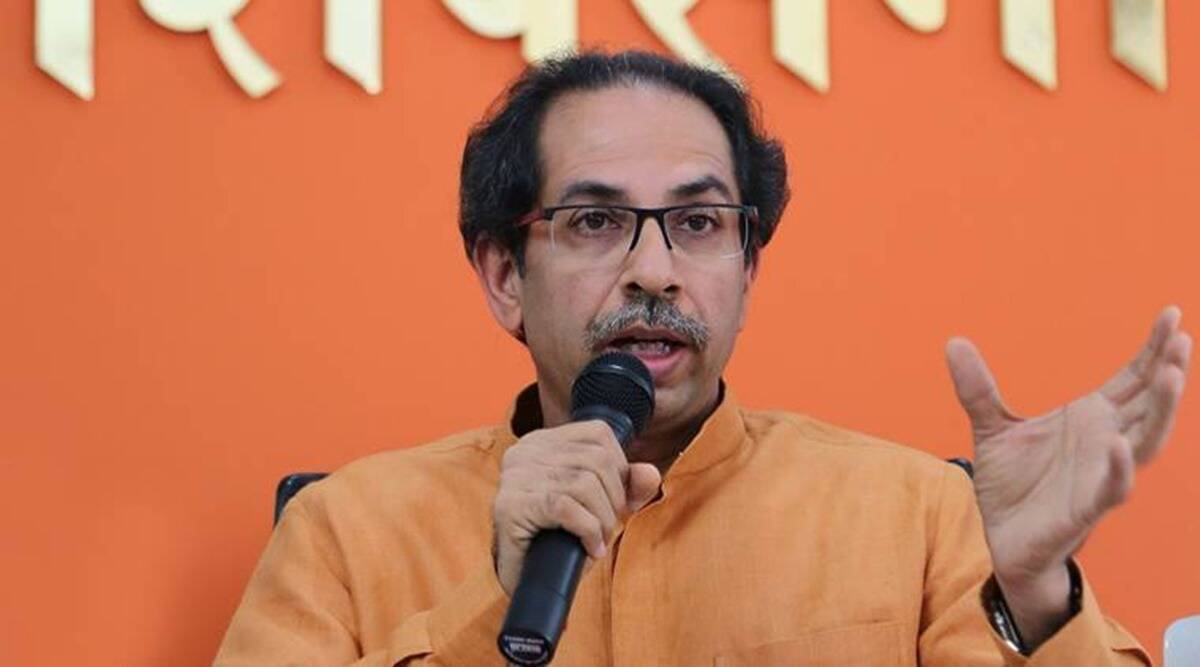 Maharashtra Chief Minister Uddhav Thackeray (File)
Maharashtra Chief Minister Uddhav Thackeray (File) Maharashtra Chief Minister Uddhav Thackeray will chair a meeting on Monday with members of the Maharashtra State Commission for Backward Classes (MSCBC) to discuss the way forward on the OBC reservation issue.
The meeting comes in the backdrop of the Supreme Court directive last week that asked the Maharashtra government to submit data on Other Backward Classes (OBCs) to the MSCBC to examine its correctness and make recommendations on their representation in elections for the local bodies.
The apex court also directed the MSCBC to submit the interim report to the authorities concerned within two weeks of receiving information from the state government.
Sources from the state government said it will provide five to six different kinds of data reports, which were earlier compiled by the Central Government to the MSCBC.
One of these reports is the National Statistical Office 77th round report “Situation of Agricultural households in India” published in September 2021.The report states that of the total agricultural households in the state, 39.9 per cent are from the OBC community. OBC households constitute 39.6 per cent of the state’s non-agricultural households.
The state will also rely on the Centre’s social welfare statistic’s report of March 2021 which states that in Maharashtra, OBCs constitute 33.8 per cent of the total population. The Centre’s Unified District Information System for Education (UDISE) report for 2019-2020 says that an average of 33 per cent of students in the state belongs to the OBCs.
Another report by the Gokhale Institute of Politics and Economics, on behalf of the Maharashtra Government to analyse the Socio Economic and Caste Census 2011, will also be given to the Commission. This report states that OBCs constitute 48.6 per cent of the state’s total population.
Officials said that the idea behind presenting these reports is to reaffirm the fact that the OBC population in the state is way higher than the 27 per cent reservation that has been granted to the community.
“The government will provide all the reports to the MSCBC that will show the OBCs population in the state and their backwardness in various sectors. These reports and data will show that the OBCs population is more than 27 per cent and will validate the state’s law, passed in the winter session of the state legislature, of giving up to 27 per cent reservation to the OBCs without breaching the 50 per cent ceiling limit of reservation,” added the official.
The state is, however, finding it a challenge to measure the socio-political backwardness of the OBC community in contemporary times due to absence of any fresh study and unavailability of census or fresh caste related data.
Sources in the government said that it is very difficult to define “political backwardness” as it is a complex issue.
“The state has included the six castes in the OBCs in 1994 and they have been getting elected in local bodies. Also, some of the OBCs might be getting elected from the open category as well. So, it is difficult to define their backwardness as they have already been getting representation in the local bodies,” said an official.
The official further said that the exercise of finding the political backwardness can be done in case of inclusion of new castes in the OBC category.
However, experts said the data from the state election commission from 1960 for local bodies can be obtained and can be divided into three parts such as 1960 to 1994, which is before OBC reservation came into effect, 1994-2021, which is when 27 per cent reservation for OBCs was in effect, and 2021 onwards where elections were held without OBC reservation. The MSCBC has already received some data from the state election commission on the OBC representation but will also require some more data, said sources.
“Maharashtra will be the first state to carry out such an exercise to define the political backwardness of the OBCs. It can be done by comparing the election commission’s data on the political representations with the population,” said Hari Narke, a former member of the MSCBC.
- The Indian Express website has been rated GREEN for its credibility and trustworthiness by Newsguard, a global service that rates news sources for their journalistic standards.

